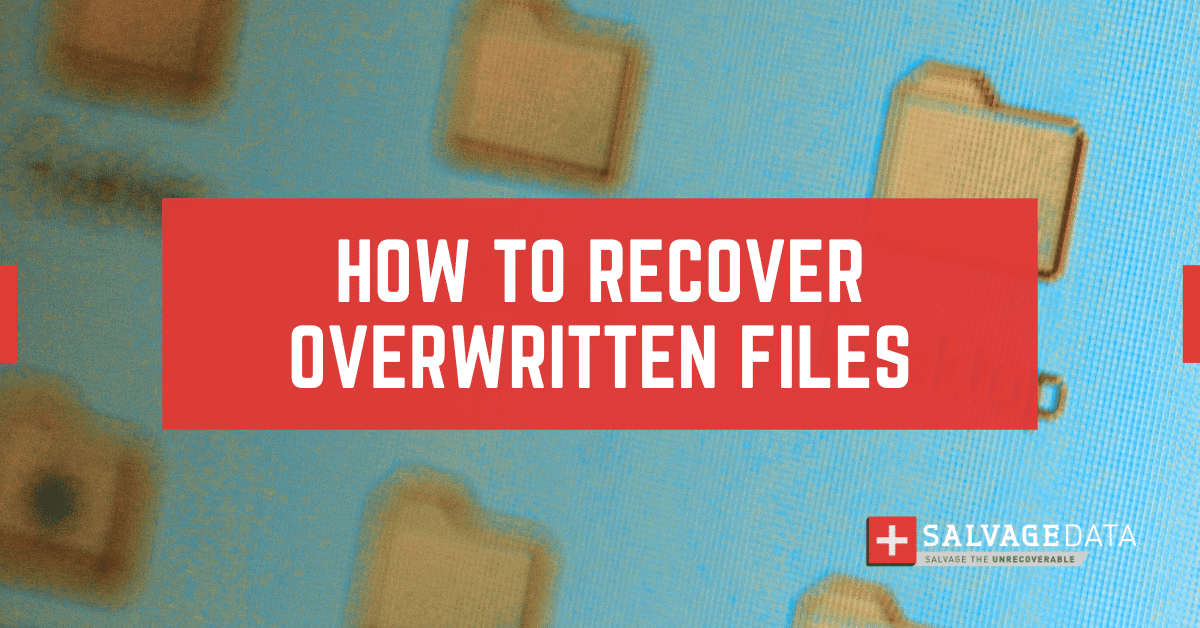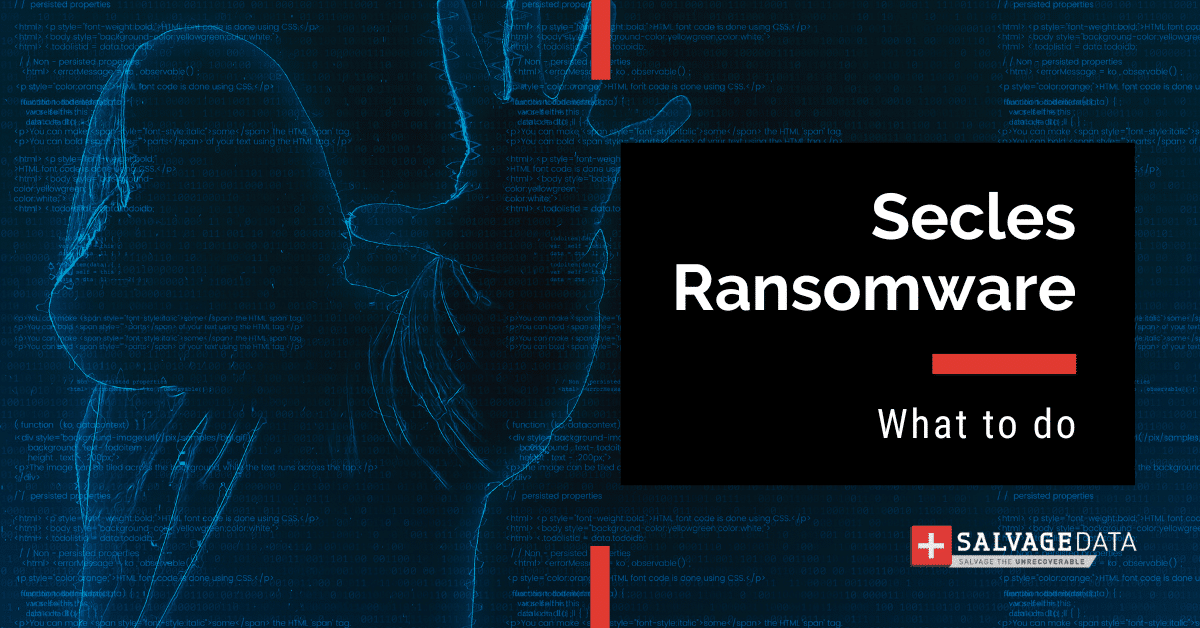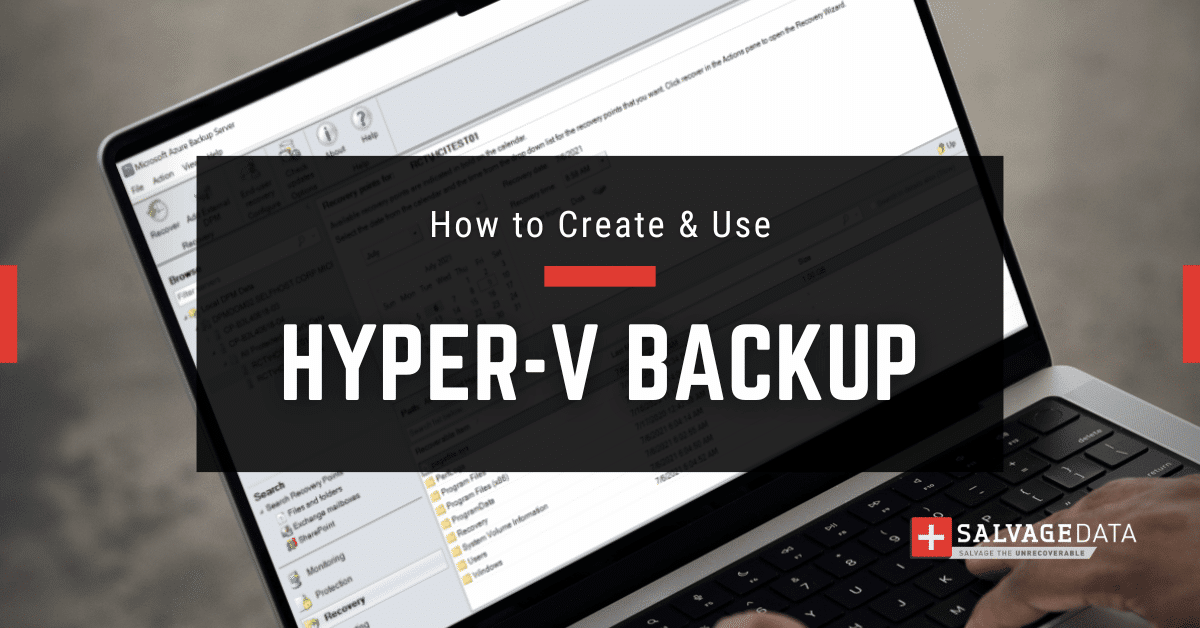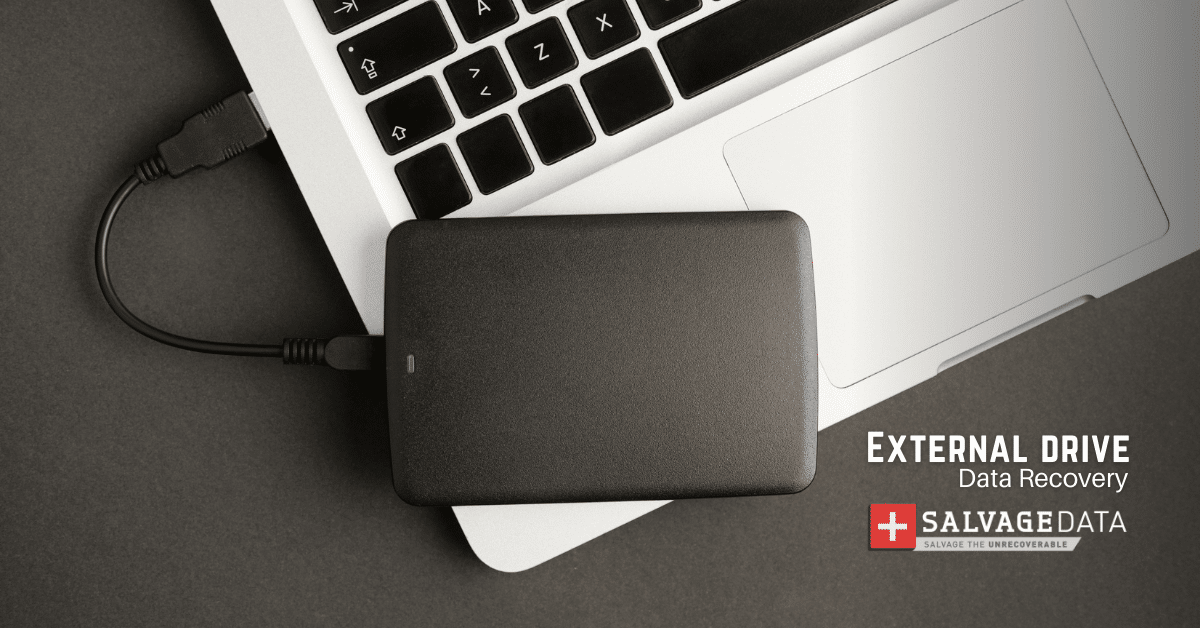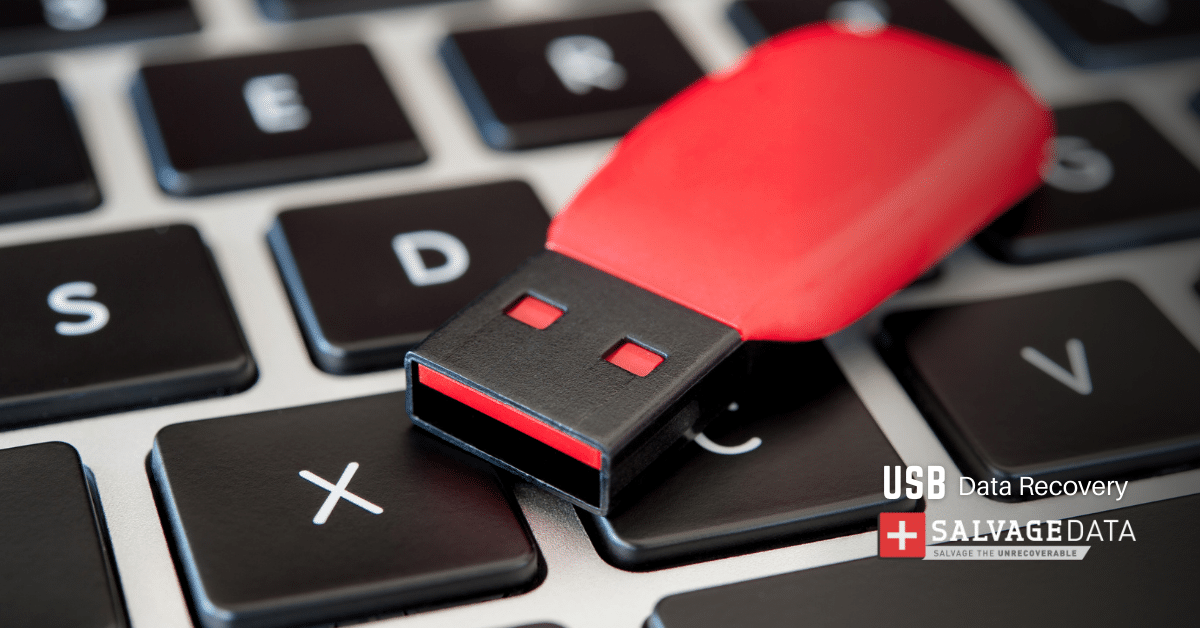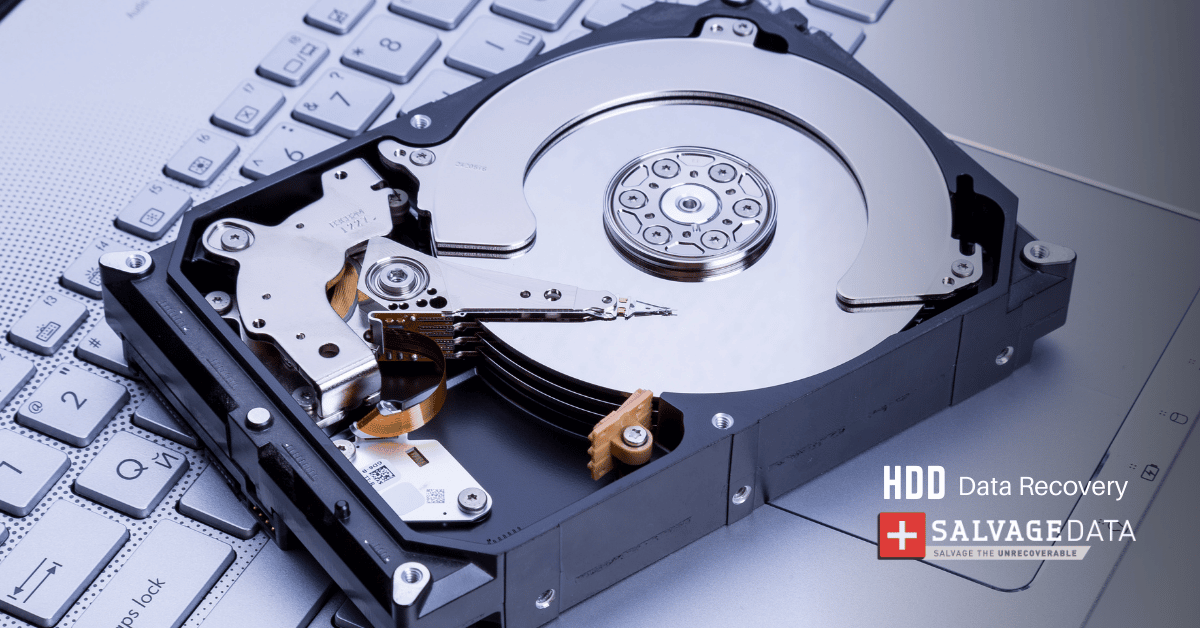Recent Articles
How To Recover Overwritten Files
The Snowflake Data Breach: A Comprehensive Overview
Mac Not Recognizing External Hard Drive: Quick Fix Solutions
How Multi-Cloud Backup Solutions Can Prevent Data Disasters
Capibara Ransomware: What is it & How to Remove
What Should a Company Do After a Data Breach: The Ticketmaster Incident
Secles Ransomware: Removal Guide
What To Do When Your Chromebook Freezes
How to Create Hyper-V Backup
What Is The Best Data Recovery Software For PC

I think there's an issue with my storage device, but I'm not sure Start a free evaluation →
I need help getting my data back right now Call now (800) 972-3282
While both external hard drives and USB flash drives are portable storage devices, there are significant differences between them. They have different sizes, performances, costs, portability, and reliability. And they also work differently to store data.
Since they work so differently, this affects which data storage purposes they are best suited for.
What Is an External Hard Drive?
An external hard drive is a storage device that connects to your computer or laptop via a USB port. It acts as an external storage for data, such as pictures, music, documents, etc. You can use external hard drives to store and back up large files and transfer them between computers.
Hard drives are made of spinning disks, or platters, that store the data in digital form. It reads and writes data on these disks as they spin.
What Is a USB Flash Drive?
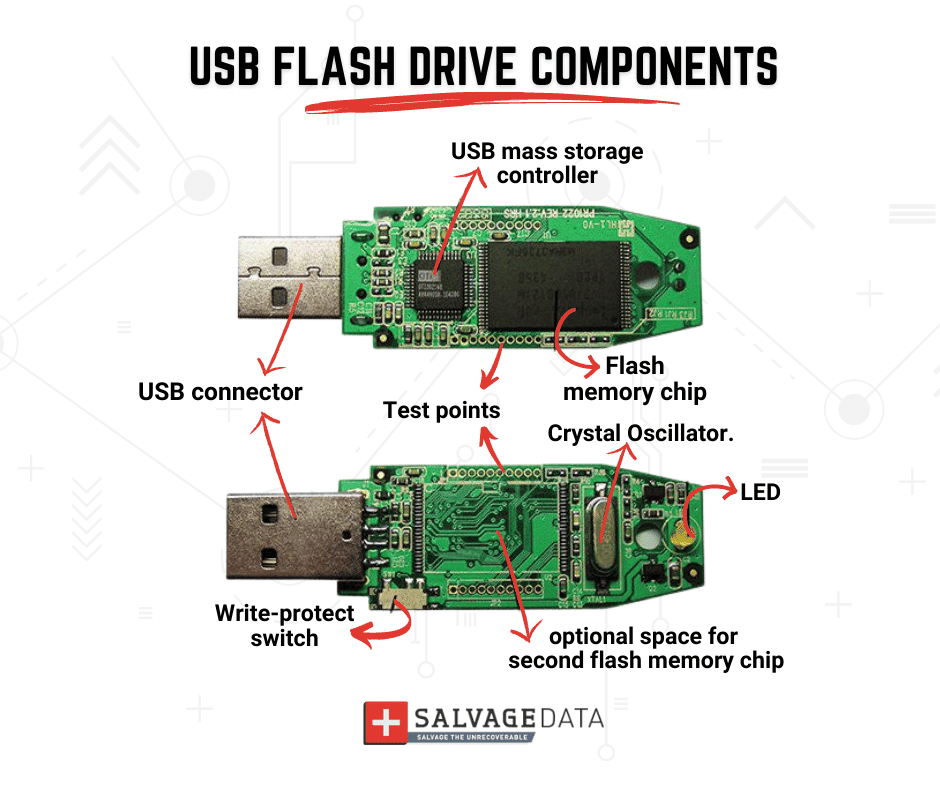
A USB flash drive is a small portable device, with no moving parts, used for storing and transferring data from one computer to another. It connects to the computer via a USB port and stores digital data in its internal memory chips.
A USB flash drive is ideal for transporting smaller files such as text documents, but it may not be suitable for larger files or programs due to its limited capacity and slow speed. Although you can find current USB drives with up to 2 TB.
External hard drive vs. flash drive: what’s the difference?
The difference between hard drives and flash drives starts with the technology they use to store data.
Hard drives store data by writing the information on platters using a moving write/read head connected to the actuator through an arm. HDDs are made of moving parts and because of this, they are very delicate devices.
Flash drives operate similarly to conventional hard drives, as the data is stored on the drive in the form of files and folders. However, USB flash drives use a NAND chip to save the data, a flash technology, which keeps the files despite how long it’s not powered on.
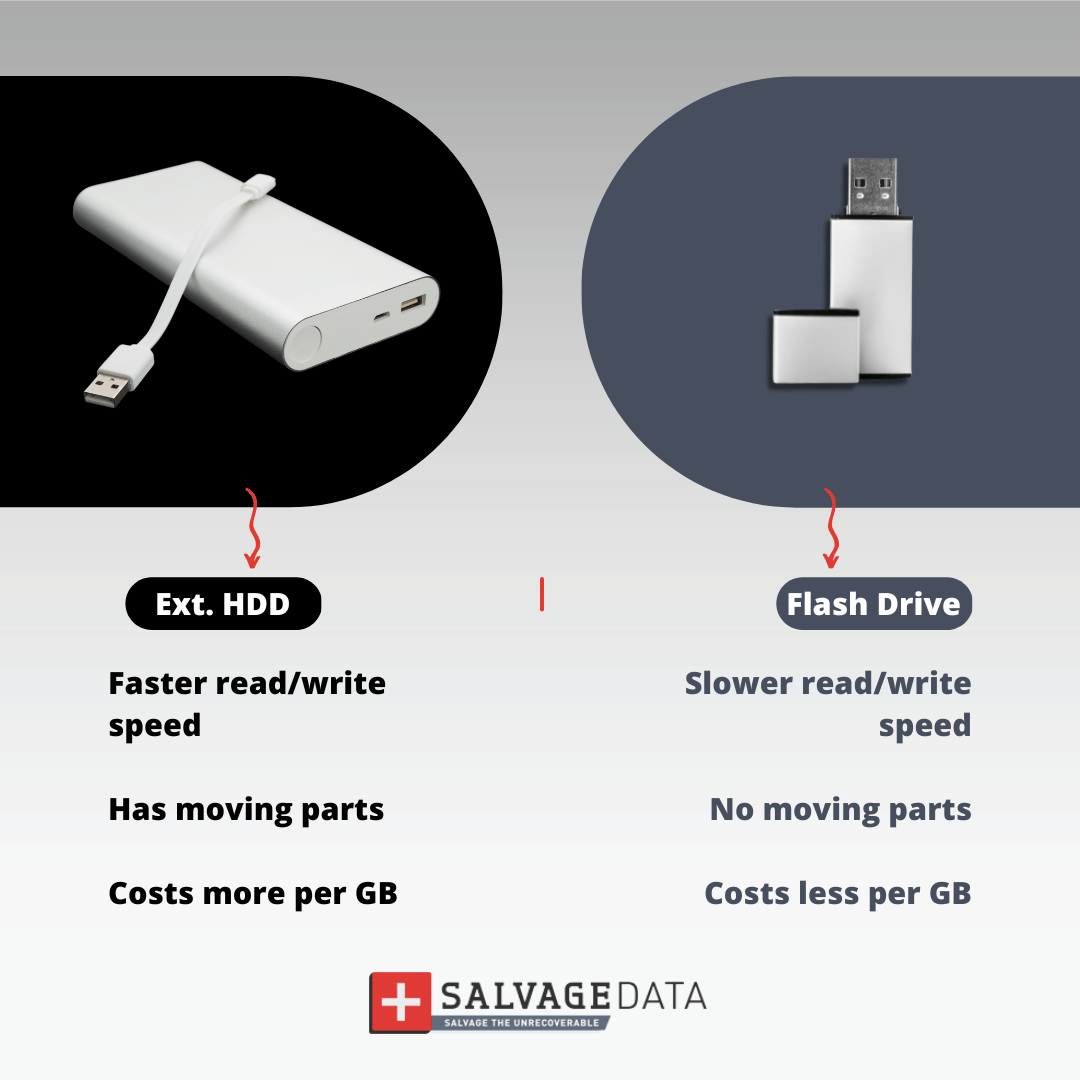
1. Size
External hard drives are typically larger and heavier than USB flash drives, making them less portable.
Even though modern hard drives are getting smaller, USB flash drives will still beat them. That’s because you can find flash drives that you can keep in your wallet, use as keychains, or put in that small pocket of your jeans.
This small size though has a drawback, since it’s very easy to lose a USB drive.
2. Performance
External HDDs offer more storage capacity, faster read/write speeds, and can store large files such as videos or images more effectively than a USB drive.
They outperform flash drives if you need a storage device to back up your data, use applications, or even boot your computer from.
For example, you can store your games on an external hard drive and connect them to a computer or to your console. However, if you do the same with a flash drive, you won’t be able to play since their read/write speed is slow. And speed matters for some tasks, as a game.
3. Cost
Flash drives cost less than external hard drives because of their smaller size and lower production costs.
Also, hard drives have more options for storage capacity. And different purposes make them have options for more speed, more warranty, or more space.
4. Portability
USB flash drives are small enough to fit on your keychain or in your pocket. Whereas external hard drives are bulkier and may require an external power source when used away from home or the office.
And this need for power doesn’t make an external HDD the best option if you need to retrieve the data quickly. Also, flash drives are a great option for uses such as storing music, since several stereos have a USB connection.
5. Reliability
While both external HDDs and USB drives can be reliable, external HDDs provide better protection against data loss compared to a flash drive.
Hard drives are equipped with advanced technologies that protect the data stored inside them from various threats such as viruses or malware attacks which might damage the data stored on them. You can find hard drives with self-encrypting technology, for example.
But, when thinking about physical damages, both are equally susceptible. While a drop may not be as damaging to a USB drive as it’s to an HDD, flash drives can bend or simply be lost. Yet, USB flash drives last longer.
6. Capacity
External hard drives have more options for storage capacity. Because magnetic platters storage technology costs less than flash technology, manufacturers offer a larger capacity for their HDD devices.
7. Lifespan
USB flash drives are more durable than external hard drives. However, external hard drives have a longer lifespan than flash drives. That’s because it does not have wear-leveling technology.
The lack of this technology makes the device wear out more quickly, affecting the lifespan of flash drives.
8. Data recovery
When external HDDs become corrupted, data recovery is much easier compared to a USB drive.
External hard drives are equipped with advanced technologies and techniques that enable them to recover data faster and more easily.
Also, the technology behind how they work to store data impacts how professionals work to restore the files.
However, a good data recovery service can easily work on both USB flash drives and hard drives.
For example, the engineers at SalvageData are always thinking outside the box to restore lost data. And even the most impossible cases, such as a run-over phone, is not a problem.
Contact our recovery experts 24/7 for a free in-lab evaluation.
Is a USB flash drive more reliable than a hard drive?
The answer to this question depends on the external storage device itself and how it is used.
While external hard drives generally offer better protection against data loss due to their advanced technology, USB flash drives have very good reliability when they are stored properly.
When carrying data from one device to another, a USB flash drive is more reliable since it has no moving parts.
However, for a backup or to use in the same place, as a second disk for your computer for example, then hard drives are a reliable option.
Which should you buy: a USB drive or an external hard drive?
Ultimately, the type of external storage you choose will depend on what you are planning to use it for.
If you need to store larger files or back up important data such as pictures and videos, an external hard drive is probably your best option. However, if you only need to transport small documents from one computer to another, a USB flash drive would be more suitable.
It’s important to remember that flash drives are not designed to write data constantly. Which means that it’ll deteriorate. Therefore, always keep a backup of any data on your flash drive.
TL; DR: External hard drives offer more storage capacity, faster read/write speeds, and better protection against data loss compared to USB flash drives. However, external HDDs are bulkier and require external power when used away from home or office. USB flash drives are smaller, cheaper, and more portable than external HDDs, but their reliability can depend on how they are stored and backed up regularly. Ultimately, the external storage device you choose will depend on what you are planning to use it for.

